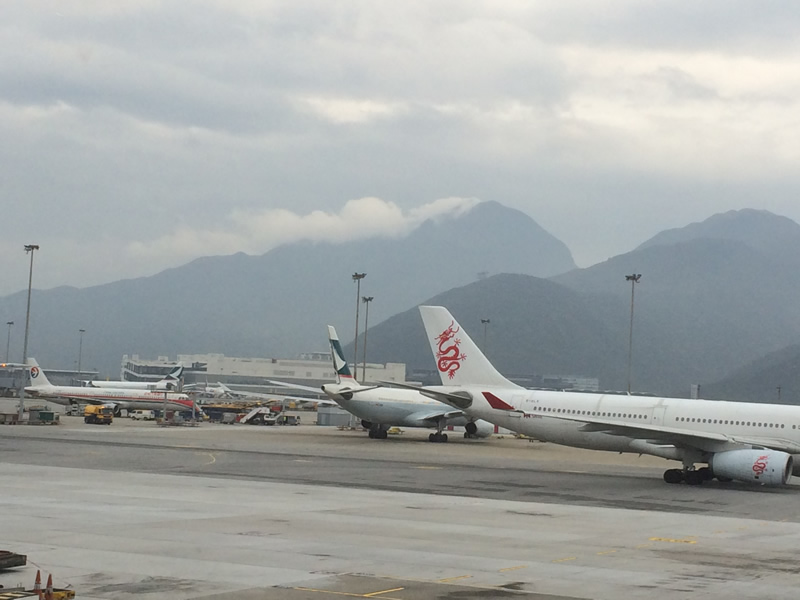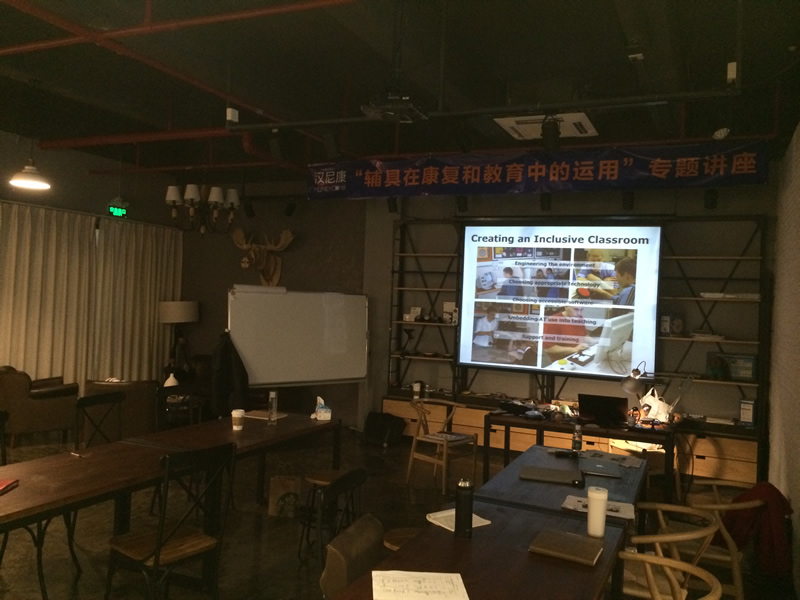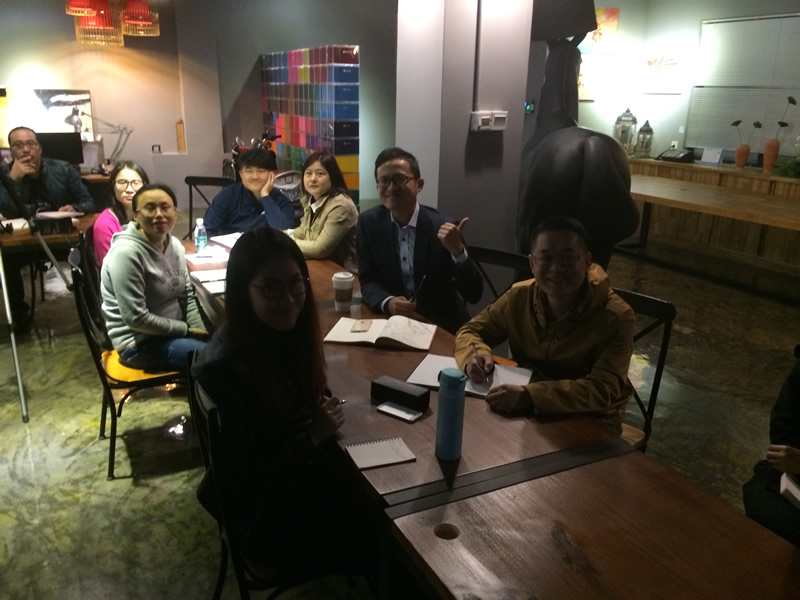I was recently asked to work together with a large assistive technology company based in Shenzhen in China to help them spread the word about inclusive education and assistive technology to schools and other organisations.

So after almost a day of travelling from my home near Manchester, my plane landed in Hong Kong airport. I was met by driver and taken across the border into mainland China and my base for the trip in Shenzhen. I know from my many trips overseas that I suffer from jet lag so tried to get my body clock in rhythm with the + 8 hours time zone.

My first 'work' was a full day presentation and discussion on Inclusive teaching and learning for colleagues at Honeycomb Technologies. You probably haven't heard the name but if you work in special education, you will know the products they make. Big Mack, Jelly Bean switches? Honeycomb make many assistive technology products for Ablenet. It was a interesting day and a day of learning on both sides. I shared with them how assistive technology forms an integral part of teaching and learning in special education, they shared with me lots of background on the implementation of assistive technology and special education in China. This is information that will be invaluable in the coming days when I will be speaking to schools and organisations.

A great start to what will be a very stimulating two weeks of learning and sharing. Tomorrow I head out to Giandong Province for a visit to the Nanhai Affiliated Maternity and Children's Hospital to see the work of Professor Zhenhuan Liu, whose work with children with cerebral palsy has gained international recognition.

Hi Ian,
My name is Mel Saddler and I’ve been an assistive technology specialist in South Wales for 20 years, sometimes based in schools but more recently, independent. I’m very interested in the work you’ve done in China; my brother has lived in China for 15 years and I’ve visited several times. I have previously chatted to an American couple who run a home for disabled children near where he lives about the potential for AT but ultimately it didn’t go anywhere. I’d love to hear your thoughts and experiences. Thanks
Hi Mel,
This is quite a timely comment as I am in the middle of planning a training tour around China taking in five cities which should happen in May of this year. When I first worked in China a couple of years ago, I felt that AT was at a very early stage of adoption. I went out there to raise awareness of what was possible and to share successful models of inclusive teaching. I worked with schools, hospitals and disability organisations and the response was amazing. People were keen to try equipment with their students and saw the potential benefits, both for the student and for the teacher / therapist / parent. Things have moved on somewhat since my first visit and this time our focus is less on specific AT equipment and more on practical methodologies they can use to embed AT into their teaching and therapy.
I do love working in China. The people I met there were so enthusiastic about the possibilities and keen to get started. An interesting side note. I have worked all around the world including some really far out places like Kyrgyzstan and Yakutsk in far western Siberia. It’s interesting that no matter what country I am in and what language is being spoken, teachers, parents and therapists ask the same questions as they do here in the west. “I have a child in my class / centre / home and ….”